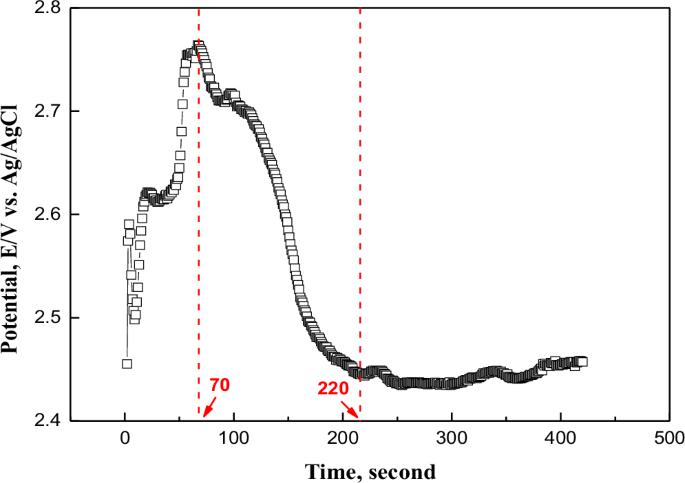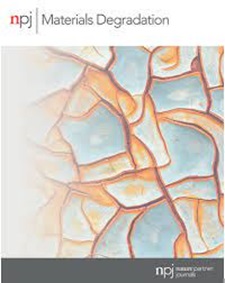Effects of electropolishing and plasma ion nitriding on UNS S31603 corrosion in ship scrubber water
IF 7.6
2区 材料科学
Q1 MATERIALS SCIENCE, MULTIDISCIPLINARY
引用次数: 0
Abstract
Marine scrubbers use seawater as washing water and are damaged by sulfur oxides and chlorides during desulfurization. Therefore, surface treatments to enhance corrosion and pitting resistance of scrubber materials must be investigated. This investigation conducts cyclic potentiodynamic polarization experiments to analyze the effects of electropolishing and plasma ion nitiriding of UNS S31603 in washing water. The corrosion current density (0.186 μA cm-2) of electropolishing is significantly lower than mechanical polishing (1.125 μA cm-2), but plasma ion nitriding is higher (18.995 μA cm-2). Electropolishing forms a uniform and dense passivation film, increasing corrosion resistance, whereas plasma ion nitriding reduces corrosion resistance due to CrN formation. All specimens present local corrosion. Electropolishing reduces the maximum damage depth by 110.13 μm and increases pitting potential by 0.32 V compared to mechanical polishing. Plasma ion nitriding reduces maximum damage depth by 46.59 μm due to suppression of local acidification during hydrolysis.

电抛光和等离子体离子氮化对船舶洗涤器水中UNS S31603腐蚀的影响
船用洗涤器使用海水作为洗涤水,在脱硫过程中会受到硫氧化物和氯化物的破坏。因此,必须研究提高洗涤材料耐腐蚀和抗点蚀性的表面处理方法。通过循环动电位极化实验,分析了洗涤水中电解抛光和等离子离子氮化对UNS S31603镀层的影响。电解抛光的腐蚀电流密度(0.186 μA cm-2)明显低于机械抛光(1.125 μA cm-2),而等离子体离子氮化的腐蚀电流密度(18.995 μA cm-2)高于机械抛光。电抛光形成均匀致密的钝化膜,提高了耐蚀性,而等离子离子氮化由于CrN的形成而降低了耐蚀性。所有试样均存在局部腐蚀。与机械抛光相比,电解抛光的最大损伤深度降低了110.13 μm,点蚀电位提高了0.32 V。等离子体离子氮化抑制了水解过程中的局部酸化,最大损伤深度降低了46.59 μm。
本文章由计算机程序翻译,如有差异,请以英文原文为准。
求助全文
约1分钟内获得全文
求助全文
来源期刊

npj Materials Degradation
MATERIALS SCIENCE, MULTIDISCIPLINARY-
CiteScore
7.80
自引率
7.80%
发文量
86
审稿时长
6 weeks
期刊介绍:
npj Materials Degradation considers basic and applied research that explores all aspects of the degradation of metallic and non-metallic materials. The journal broadly defines ‘materials degradation’ as a reduction in the ability of a material to perform its task in-service as a result of environmental exposure.
The journal covers a broad range of topics including but not limited to:
-Degradation of metals, glasses, minerals, polymers, ceramics, cements and composites in natural and engineered environments, as a result of various stimuli
-Computational and experimental studies of degradation mechanisms and kinetics
-Characterization of degradation by traditional and emerging techniques
-New approaches and technologies for enhancing resistance to degradation
-Inspection and monitoring techniques for materials in-service, such as sensing technologies
 求助内容:
求助内容: 应助结果提醒方式:
应助结果提醒方式:


